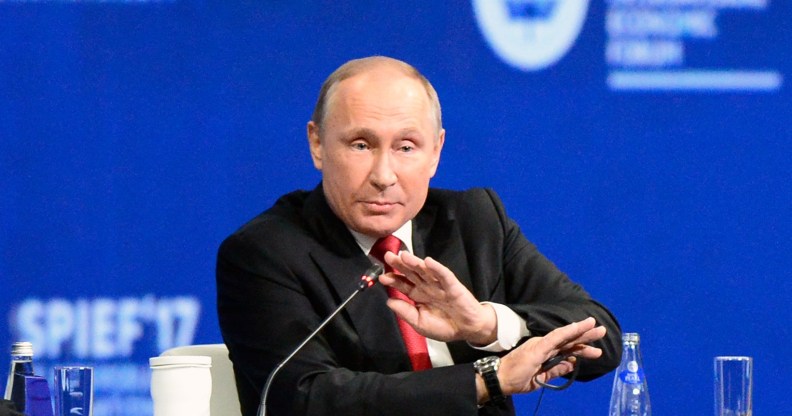Gay activists arrested as observers query Russian election

(Getty)
Gay rights campaigners were arrested yesterday at a polling station in Russia for attempting to conduct an “illegal gathering.”
The group was there to protest against homophobic Moscow mayor Yuri Luzhkov, who was expected at the polling station later that day.
Mr Luzhkov has banned the last two gay pride marches in Moscow calling them a “work of Satan.”
Activist Nicolas Alexeyev was arrested after he wrote “No to homophobes, no to Luzhkov” on his ballot.
In Russia, spoiling the ballot is a form of protest.
An appeal was made by a group of gays and lesbians to the LGBT community two weeks before the parliamentary elections to write “No to homophobes” on their ballots.
The group claimed that as none of the parties standing in the elections supported gay rights, none should be voted for.
Homosexuality in Russia was legalised in 1993 and since 1999 is no longer included on the list of mental illnesses.
The arrests came amid accusations of illegal election practices against Vladimir Putin’s party, who secured a landslide victory in the parliamentary elections.
The United Russia Party beat all opposition with 64.1 per cent of the vote.
The Communist Party, who trailed with 11.1 per cent of the vote, has announced that they will launch a legal challenge before considering whether to boycott the government.
In Washington, White House sources also voiced concern over the accusations and called upon Mr Putin to launch an investigation.
The opposition has accused the United Russia Party of pressurising voters, bribery and ballot-stuffing.
According to Reuters, Grigory Melkonyans of Golos, Russia’s biggest independent election observer, said: “These are not isolated incidents. The complaints are from every corner of Russia.”
The state-run media concentrated largely on Mr Putin and his party in the run up to the elections, while virtually ignoring the opposition.
The Office for Democratic Institutions and Human Rights, Europe’s main election watchdog, has claimed that it was unable to monitor the elections because it was obstructed by the Russian authorities.
Liberal politician Boris Nemtsov called it “the most dishonest election in the history of modern Russia.”
Yet opinion polls show that Mr Putin is very popular among the masses because he rescued the country from it economic slump in the 1990s.
Although Mr Putin is bound by law to step down in March after two terms, he will still remain a highly influential figure because of his party’s grip on power.
Many have speculated that this will drive a wedge between Russia and the West especially in light of Mr Putin’s comments last week about the West “poking their snotty noses” in Russia’s affairs.
Mr Putin won a seat in the country’s Duma, or parliament, in the election, meaning he could become Prime Minister after stepping down as President.

